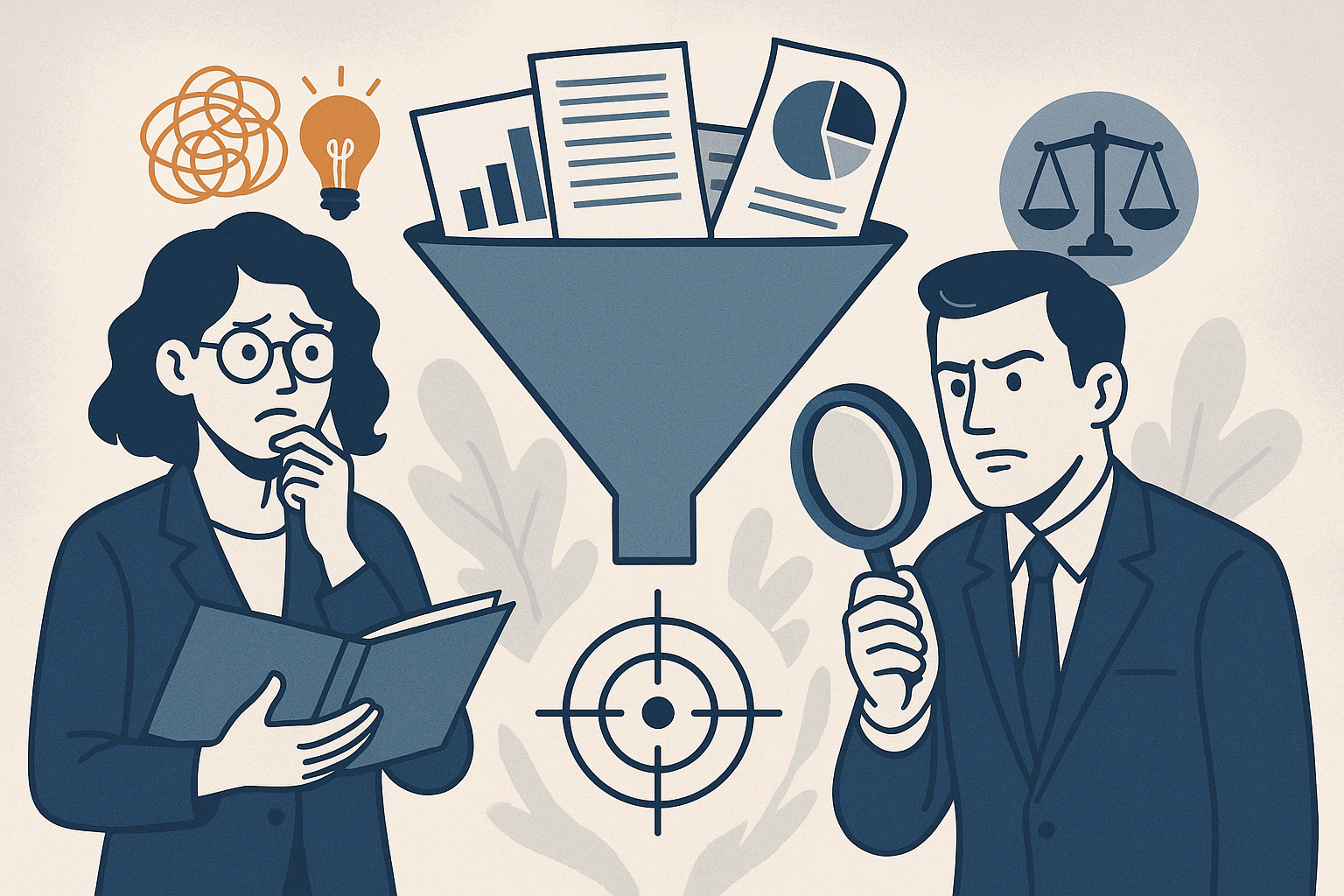Matey Video Demo - DUI Case with Voiceover
The video is a quick demonstration of Matey, showcasing how attorneys can review evidence, such as in a DUI case, in minutes.

Cognitive bias - like confirmation bias, anchoring, or tunnel vision - slows investigations and risks missed evidence. Matey AI combats this by surfacing facts directly from data, building objective timelines, mapping relationships, and enabling plain-language queries. The result: faster, smarter, and more fact-driven investigations.
Bias doesn’t mean incompetence - it means being human. But in legal work, it creates major problems:
In criminal defense, this can mean lost outcomes, not just lost hours.
Matey AI helps teams ground their work in evidence instead of assumptions:
One corporate investigator spent over a week manually mapping acronyms, relationships, and email threads to understand an employee’s actions.
After uploading the same dataset to Matey:
Result: Hours of speculative review replaced with minutes of precise answers.
When investigations are grounded in facts instead of assumptions, defense teams can:
Matey AI doesn’t just make reviews faster. It makes teams smarter, more objective, and better prepared to uncover the truth.
Bias is inevitable, but wasted time and missed evidence don’t have to be. Matey AI keeps investigations grounded in facts, enabling defense teams to focus on what matters most: the truth. And in criminal defense, there’s nothing more powerful than that.
What types of bias affect investigations?
Common types include confirmation bias, anchoring, and tunnel vision - all of which distort evidence review.
How does Matey AI fight confirmation bias?
By allowing natural language queries, auto-building timelines, and mapping relationships directly from the data - without preloaded assumptions.
Does Matey AI replace investigators?
No. It augments investigators by removing grunt work and surfacing objective facts faster.
Can Matey analyze audio and video evidence?
Yes. All content is transcribed, OCR’d, and indexed for full-text and natural language search.
What’s the biggest benefit for defense attorneys?
Objectivity. Matey ensures teams focus on facts, not assumptions, improving strategy and case outcomes.